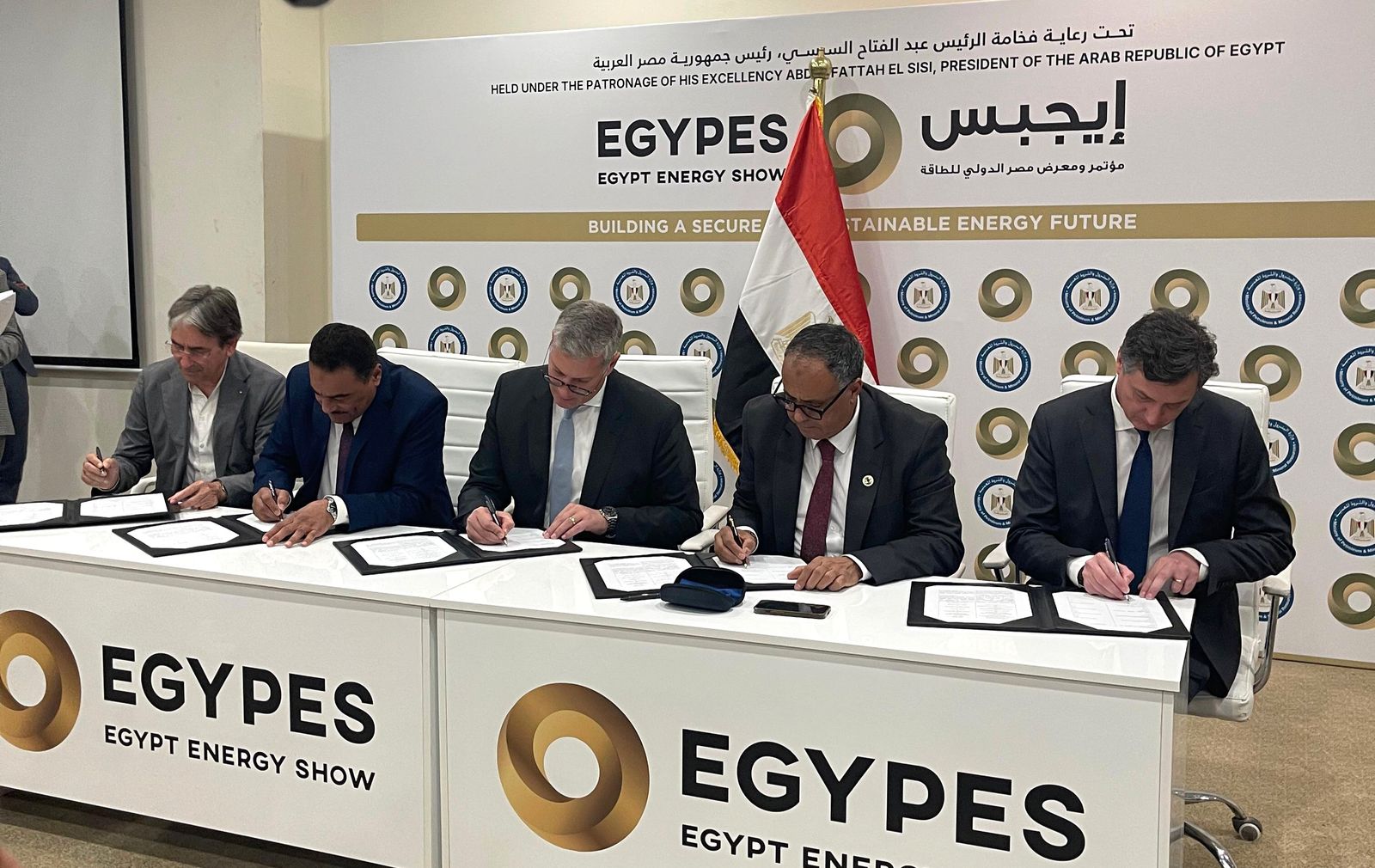24 In a significant advancement for organic agriculture, SEKEM, a leading Egyptian social enterprise dedicated to regenerative development, has signed a cooperation agreement for the implementation of the “Towards Organic Agriculture” project with the Ministry of Petroleum and Mineral Resources, Matrouh Governorate, the Egyptian General Petroleum Corporation (EGPC) and IEOC Production B.V., representing Eni. The agreement was signed during a ceremony on the second day of the EGYPES conference, attended by notable figures including H.E. Eng. Karim Badawi, Minister of Petroleum and Mineral Resources; Major General Khaled Shoeib, Governor of Matrouh; Eng. Francesco Gasparri, General Manager of IEOC Production B.V.; Eng. Salah AbdelKerim, CEO of EGPC; and Mr. Helmy Abouleish, CEO of SEKEM Group
The “Towards Organic Agriculture” project aims to enhance organic agricultural practices in Egypt, particularly in Matrouh, by supporting 700 farmers in their transition to organic farming. The initiative also includes integrating these farmers into a carbon certification system, providing them with sustainable income sources
The project actively works to support organic agriculture and empower smallholder farmers through a range of activities. It enhances farmers’ skills through training and capacity building, and provides essential resources such as organic inputs, composting systems, and photovoltaic units for water pumping. Moreover, the project facilitates access to markets and organic certification, assisting farmers in obtaining certifications and connecting with premium buyers. By promoting participation in the carbon credit system, the project also empowers farmers to generate additional income and enhance their livelihoods
Helmy Abouleish, CEO of SEKEM Group, commented: “According to the Food and Agriculture Organization (FAO), 24 million Egyptians are involved in agriculture and fishing, yet farming still carries a stigma in our society. Farmers often lack the recognition and support they need to thrive. At SEKEM, we view society as an interconnected unit, a belief that drives our commitment to a holistic approach to sustainable development. Our ‘Economy of Love’ model empowers farmers to adopt sustainable practices such as organic and biodynamic agriculture. These practices not only improve soil health and crop quality but also contribute to carbon sequestration and generate additional income through carbon credits. Through this cooperation, we aim to support 700 farmers in the Matrouh Governorate as part of our broader initiative to transition 40,000 farmers to sustainable agriculture by 2025. Also, this project underscores the importance of public-private partnerships in promoting economic growth and environmental sustainability”
For nearly five decades, SEKEM has been a driving force in sustainable development, with a strong focus on supporting local communities through an integrated approach encompassing social, economic, cultural, and ecological dimensions. Working alongside the Egyptian Biodynamic Association (EBDA), SEKEM has supported over 17,000 farmers in transitioning 47,000 acres to organic and biodynamic agriculture. These efforts aim to address global challenges such as climate change, food security, and water scarcity while empowering farmers to adopt sustainable practices. Through its holistic approach, SEKEM continues to drive positive change for the environment by promoting biodiversity, conserving resources, and fostering environmental awareness within its communities
About SEKEM
With the vision of promoting sustainable development in economy, ecology, society and culture, Dr. Ibrahim Abouleish founded the SEKEM Initiative in the Egyptian desert in 1977. The SEKEM group of companies produces, processes and markets organic and biodynamic food, textiles and herbal medicines in Egypt and on international markets. SEKEM is considered the Egyptian “organic pioneer” and was awarded the “Alternative Nobel Prize” in 2003. The SEKEM companies use parts of their profits to finance the activities of the SEKEM Development Foundation (SDF), which runs among others schools and a medical centre. In 2012, Heliopolis University for Sustainable Development was established as part of the SEKEM Initiative. The university was founded with the aim of pioneering the introduction of sustainable development concepts and principles to its students and the broader Egyptian community
